Acupuncturists understand the body as a complex system of energy systems, meridians, and organs. However, when an acupuncturist talks about an organ, like the spleen, heart, or kidneys, they are not referring to the physical organ that sits inside your body, but rather the energetic side of these organs. The energetic system is much bigger than just the physical organ and governs certain functions in the body on many levels.
The kidney system is one of the most important of these energetic organ systems.
In Traditional Chinese Medicine, the kidneys represent the deepest, most fundamental levels of energy in the human body. They are said to be the root of yin and yang in the body – two fundamental forces at play in our physiology. The kidneys also store a substance called “essence” which is our genetic code, our life force, and our reproductive ability.
The kidneys in Chinese Medicine are related to the water element, which is the elemental energy of winter. Whereas many energy systems are all about movement, the kidneys are about rest, relaxation, and rejuvenation – they are the energy of holding, of turning inward, and of protecting that which is most important. Think of still-reflecting pools or a quiet winter night. These are kidney energy. The kidneys are often referred to in Chinese Medicine as our “root” – they are tasked with caring for the most precious parts of us that make us who we are.
On a physical level, the kidneys govern the water passageways within the body (appropriate being the water element!) as well as control growth and reproduction. In a five-element understanding of Chinese Medicine, the kidneys are at the end of the life cycle, before rebirth occurs again (such as winter making way for spring.) This means the kidneys have a vital role to play in end-of-life transitions.
The spiritual aspect of the kidneys is called Zhi, or willpower. Again, the kidneys are our root, our fundamental and core energy. When that system is weakened, a person may not feel drive, or motivation or can push themselves. Their understanding of who they are and what they can do has been diminished.
The emotion associated with the kidneys is fear. When the kidneys are weak, a person may be startled or frightened easily or may experience fear in disproportionate ways. Likewise, shock, trauma, and fearful situations weaken kidney energy, which is why many of the common symptoms of PTSD have a kidney imbalance at their root. The person’s core has been shaken.
The kidney energy, being the deepest level of energy in the body, takes time to replenish and strengthen, which means patience is key. Also, kidney energy naturally declines over the life cycle, which is the normal aging process. So, as we age, protecting the kidneys becomes all the more important!
Being associated with the water element, the kidneys are nourished by foods that come from the water – fish, seaweeds, and shellfish are nourishing to this system. The kidneys are associated with a salty taste, so naturally salty foods such as miso or millet also are good choices. Avoid foods that are damaging to your root energy, such as sugar, caffeine, alcohol, greasy foods, and highly processed foods.
The kidneys are damaged by overwork, too much responsibility, lack of sleep, and a frenetic schedule. In other words, most of us living in modern society are taxing our kidneys! This means it is even more important to carve out time and space to take part in kidney-nourishing habits.
As we mentioned, the kidneys are nourished through rest and rejuvenation. Pay attention to your sleep and be sure you are getting the hours that you need! Take a nap during the day if you need it. Engage in gentle, relaxing forms of exercise, like yoga or tai chi. Try meditation or guided visualizations to calm and center yourself. Find a schedule that works – one that really works – for you.
Bring the water element into your life and your home by getting a small decorative fountain, using essential oils, taking baths, or spending time near rivers or oceans, or other bodies of water.
The kidneys, being the source of our reproductive strength, are also weakened by excessive sexual activity. So go for quality over quantity.
The kidneys represent what makes you, you. So, take the time to give them the support they need!
The food we consume and the oxygen we breathe provide us with recharging energy (postnatal qi). It is critical to provide enough postnatal qi to the body in order to avoid depleting our reserve essence, which is required for good kidney function. Kidneys govern growth and development and promote the health of our brains, bones, bladder, ears, and reproductive system, according to Traditional Chinese Medicine. Our low back and knees are likewise governed by them.
Signs and symptoms of kidney deficiency or depletion include:
Developmental disorders, congenital issues in children (essence deficiency)
Premature aging: graying
Deafness
Weak brittle bones, hair/teeth loss
Infertility
Low Back Pain, weak knees
Extreme fatigue (can happen when both the rechargeable energy is depleted, and the battery is low)
Winter is the time to be very mindful of our kidneys as it is when our energy can be most easily depleted. Winter is the ultimate yin time, and calls for rest, reflection, conservation, and storage. Days are shorter while nights are longer. This is nature telling us to get more sleep. Your body responds to less sunlight by producing more melatonin in the winter, the hormone that helps us rest. If we do not adjust to the season, we can easily get burnt out. Consider your adrenal health when thinking about avoiding burnout, as those little glands that sit on top of your kidneys are, in part, responsible for what TCM considers kidney qi. The cold of winter presents an additional challenge too, as the adrenal glands, together with your kidneys must work extra hard in helping to regulate body temperature.
The bottom line when it comes to kidney health in winter is to recognize the need for rest (and don’t just disguise it with stimulants like coffee!). Extreme exercise and activity are contraindicated. With the cold of winter slowing things down to a near halt, gentle exercise like yoga, stretching, tai chi, and qi gong are perfect movement therapies to prevent winter stagnation.
Don’t be afraid to get some fresh air and sunlight, when possible, too! The morning is the ideal time to get out and go for a walk when winter weather permits. Dress appropriately but soak up as much Vitamin D as you can. It is essential for immunity, mood, bone health, etc. And if you are looking to slim down, take note that exercising in cold weather helps to transform white fat (belly and thigh fat) into calorie-burning brown fat. [1]
If you can’t get outside in the morning start your day with this simple qi gong exercise: (you can gently awaken your qi with a stretch session first)
~with feet hip-length apart and knees slightly bent
~slowly swing torso left to right, letting the head follow
~let arms/ hands percuss the front lower abdomen and lower back as you let the natural momentum take over
~can finish with a stimulating rub on the low back to send some love into those kidneys.
Let your acupuncturist give your kidneys some love this winter too! With treatments to support kidney function and preserve essence, your acupuncturist can help you relax into the specific balance you need to thrive in the colder months.
[1] https://www.accuweather.com/en/health-wellness/what-you-need-to-know-about-brown-fat-and-exercising-in-the-cold/663420#:~:text=%22Brown%20fat%20could%20be%20activated,than%20during%20the%20warmer%20months.
There are a number of complications that can happen to a woman’s ovaries over her lifetime such as Ovarian Cysts which commonly occur and even go away without treatment. There are more serious problems that can occur in relation to ovaries, such as ovarian cancer, which require extensive treatment. The best way to treat these conditions is with preventative care and frequent check-ups with your Primary Care Physician. Below are tips that you can fit into your daily routine for better ovarian health.
Healthy Foods
Women with polycystic ovarian syndrome, a condition involving the imbalance of sex hormones, have a higher risk of ovarian cancer and obesity. Because of this, it is even more important for those with PCOS to maintain a healthy diet. Below are foods to consider in your diet. Lean Proteins are important to consume! Limiting your saturated fat intake can help decrease the body’s inflammation and lower the chance of ovarian cancer. Good sources of lean proteins include fish, chicken, lentils, beans, and eggs.
Fruits and Vegetables: Fruits and vegetables are never a bad choice to include more into your diet. They are packed with vitamins and antioxidants to help strengthen your body’s immune system and fight disease. Tomatoes and onions can especially help prevent ovarian cancer.
Nuts and Seeds: Healthy fats are important for ovary health. The unsaturated fats in nuts and seeds can provide omega-3 fats that can reduce inflammation and help decrease your cancer risk.
Exercise
Women who are overweight or obese have a higher risk of developing ovarian cancer. Along with a healthy diet, it is important to have regular exercise to maintain health. Exercise is thought to help the body’s immune system, which in turn can help prevent obesity and ovarian cancer. Starting off with just moderate exercise that includes taking a walk most days or light jogging can be impactful on lowering your risk.
Herbs
Chinese Herbs: Cinnamon and Rahmanian is a common combination of herbs that has been used in traditional Chinese medicine to treat ovarian cysts. These herbs can be found out at health stores as well as be ordered online.
Brassica vegetable extract: This is a natural antioxidant that can help prevent diseases such as cancer, diabetes, and other chronic diseases. Brassica vegetables include kale, broccoli, cauliflower, cabbage, and Brussels sprouts. These vegetables contain glucosinolates, which work as an anti-carcinogen, helping to decrease the risk of cancer. You can find brassica vegetable extract in your local health food store.
Acupuncture
Spleen 6: This point is where the three yin channels of the leg (spleen, liver, and kidney) intersect. It is located above the tip of the medial malleolus on the posterior border of the medial aspect of the tibia. To put it simply, it can be found three inches above the tip of the inner ankle bone in a depression. In Chinese medicine, the spleen meridian has a big influence on digestion and reproduction. It is vital for the production of blood and the control of the blood. As one of the main points for reproductive health, Spleen 6 can be used for infertility, uterine bleeding, prolapse, pain in the genitals, menstrual cramps, difficult labor, irregular periods, painful periods, low milk supply, ovarian cysts, fibroids as well as to expel the placenta post-childbirth. For men, Spleen 6 can be helpful in treating impotence, pain in the genitals, hernia, and premature ejaculation.
Ren 12 – This point is located on the midline of the abdomen, about four thumb-breadths directly above the belly button. This is the final point that completes the four doors grouping. Just like its counterparts, Ren 12 can help with bloating, abdominal pain, and diarrhea. It is also used to treat stomach aches, acid reflux, vomiting, and diarrhea. This point also benefits the uterus and ovaries and helps to regulate qi.
Along with these lifestyle guidelines, consider the mentioned acupuncture points (along with many others) for preventative treatment as well as managing an existing problem. These can help get you back on the road to better health! What are you waiting for? Contact us today to schedule your acupuncture appointment today!
If you feel like you’re battling frequent colds, a cough that won’t quit, or just seem to be tired all the time, it may benefit you to find time for a daily walk or simple exercise routine. Doing this a few times per week can have many health benefits and help build your immune system. Viruses such as COVID-19 take hold in our bodies when our immune systems are at their weakest points. Below are a few ways to help increase your immune function so your body can function as it’s meant to and stay balanced!
A scientific review conducted in 2019 in the Journal of Sport and Health Science found that exercise can improve your immune response, lower illness risk, and reduce inflammation. This study reported on immune system reactions to those who partook in moderate to vigorous physical activity lasting less than an hour. The author of the study, David Nieman, stated that “Because exercise increases blood and lymph flow as your muscles contract, it also increases the circulation of immune cells, making them roam the body at a higher rate and at higher numbers.” This shows that increased exercise helps increase your immune system function thus giving you a better chance at staying healthy. There are many reasons that exercise is recommended when it comes to nurturing a healthy immune system. One reason is because of your body temperature; as you work out, your body temperature rises during and after exercise which helps to prevent bacteria from growing, thus helping to fight infection. Additionally, physical activity helps to flush bacteria out of your lungs and even slows the release of stress hormones (cortisol) which is also known to hinder the immune function.
If you drink every day or frequently, you may notice that you are more susceptible to catching colds, and drinking is shown to dramatically impair the immune system.
If you have a hard time refraining from drinking, these self-massaging acupuncture points help the body release toxins, control cravings, and become more grounded.
Liver 3: Located on the top of the foot. Start in the space between the big toe and the second toe, now walk your fingers back along that depression onto the top of your foot until you run into a bone and you can’t go any further. This is Liver 3. It helps to balance the liver energy of the body and helps reduce stress.
Large Intestine 11: Located on the lateral elbow, at the end of the elbow crease. Large Intestine 11 clears toxins from the body, as well as releasing heat. It also balances digestion and helps to regulate body temperature.
When you look at a nutrition label, what’s the first ingredient you look for? For many of us, we’ve been trained to look for the calorie count per serving, but did you know that The American Heart Association recommends that we limit our sugar intake too? The AHA suggests that men eat less than 36 grams (9 tsp) of sugar per day and that women have no more than 24 grams (6 tsp). To add perspective, the average person eats nearly 15 teaspoons of sugar each day (that’s almost double the recommended amount)! Why is the consumption of sugar an issue? When we consume sugar, our bodies break it down and become inflamed. This decreases our immunity because it weakens the white blood cells’ ability to fight off infection! If you have a sweet tooth and want to make a sweet treat that also optimizes your immune function, try making this TCM herbal tea below:
Add all ingredients to a pot and bring to a low boil and then simmer for around 10 minutes. Once it’s done simmering, turn on low heat, stir in honey, and then pour through a strainer. Enjoy!
The immune function has never been more important. If balancing your body is now a priority to you, schedule an appointment with us so we can create an individualized acupuncture plan just for you to help keep your immune system in tip-top shape!
Battling another cough or cold? Feeling tired all the time? You may feel better if you take a daily walk or follow a simple exercise routine a few times a week. Just like any time of year, exercise is a great way to keep your body strong, but it’s extra important if you want to take advantage of what your immune system is capable of. The physical movement will increase your blood circulation and oxygen, as well as eliminate metabolic wastes.
Fitness is one of the largest growing industries today. When choosing which program best fits your life and your desired outcome, it is important to look at these four aspects of a fitness routine.
Endurance – These activities are designed to increase your heart rate and breathing for extended periods. Gradually build up endurance exercises over a period of time, initially starting out with as little as 5 minutes. Examples of endurance exercises include briskly walking, cycling, long-distance running, aerobics, and may even include mopping or scrubbing a floor, mowing or raking the lawn.
Strength training – Increasing your strength can improve and maintain your mobility, control your weight, and sculpt a muscular body. Lifting weights is one of the easiest and fastest ways of building muscle. Martial arts are another form of strength training exercise.
Flexibility – Increasing your flexibility will help “loosen” you up and allow you to move more freely. One great way to prevent injury and aid performance is to do these exercises before and after endurance and strength training. Tai Chi or gentle stretching falls within this category.
Balance – More and more, people are seeking balance exercises to reduce stress and harmonize body, mind, and spirit. Tai Chi and Qi gong are exercises to balance these aspects while cultivating Qi energy that can keep you strong and healthy.
Talk to a qualified professional before you start an exercise routine in order to best determine what will fit into your desired outcome of a healthy, balanced body.
Consider acupuncture for performance enhancement: identifying the underlying conditions that may predispose an individual to injuries and for treating sport-related injuries effectively. Remember, acupuncture can be introduced at any phase of a treatment regimen for an injury. It is safe, effective, and natural.
If you would like to learn more about how Tai Chi and Acupuncture can help you feel healthier call today or send an email to us!
Chinese medicine has several areas of focus. One of the areas of focus is exercise. Exercise is essential to prevent disease and also to help facilitate healing. One of the exerises that we teach and practice at Master Lu’s Health Center in Salt Lake City is called eight sections of brocade or ba duan jin.
Ba Duan Jin is a qi gong set known to have been originally developed by Yue Fei who was a Chinese general during the Southern Song Dynasty. Ba Duan Jin is a group of eight exercises that will help you develop flexibility, strength, and health. The daily practice of Ba Duan Jin will help you from getting sick and prevent illness.
Recently there has been research about ba duan jin (eight section of brocade). There was a recent research article that showed improved health among those with COPD or chronic obstruction pulmonary disorder. The study was a small study, and there needs to be more or larger studies. However, it is a start and it did have good results.
It study concluded that patients with COPD can benefit from the practice of Ba Duan Jin along with conventional treatment. It is recommended that COPD patients learn and practice Ba Duan Jin to help with the disease. Ba Duan Jin will improve pulmonary capacity and help with the lung function.
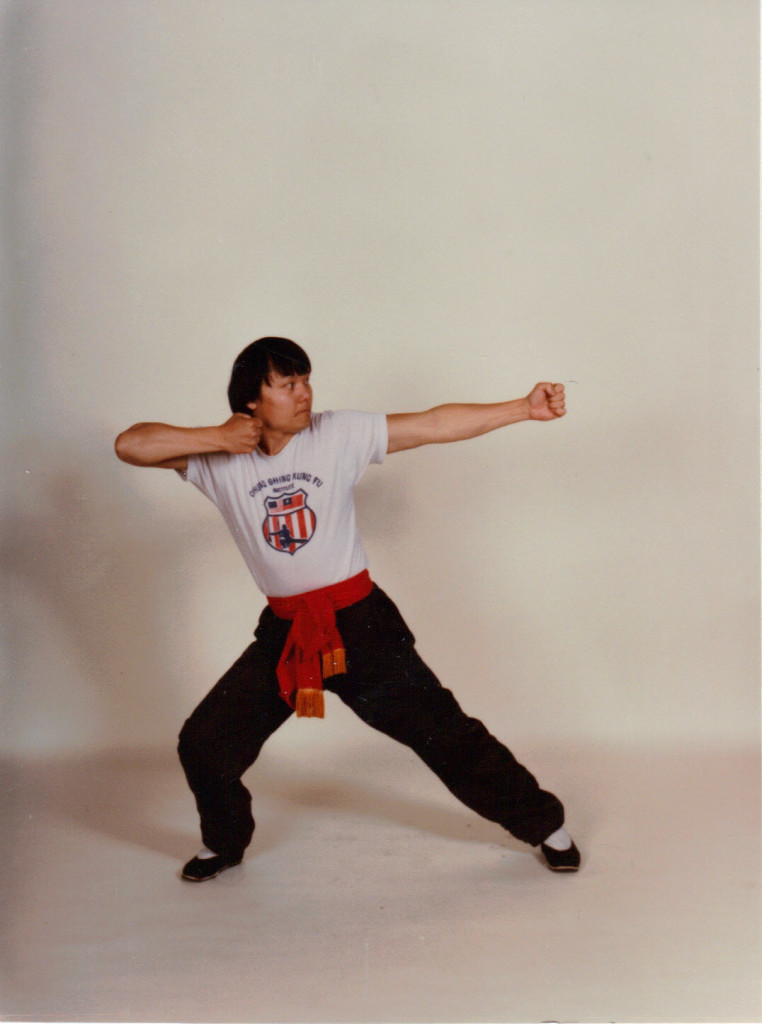
To take a look at the study you can go to the following link: http://www.mdpi.com/1660-4601/15/9/1830/htm
Ba Duan Jin is a form wonderful form of exercise that will help you to prevent illness, and improve your health and wellness. Give us call at Master Lu’s Health Center if you are interested learning more about ba duan jin.
There are many people who will experience headaches caused by many different reasons. Many people will have headaches monthly, weekly, and daily. What do you do about helping your headaches? You may take medication, rest, or do something naturally. Many of the medications for headaches could come with side effects that will affect your health in many ways. There are more people who have been turning to more natural methods such as acupuncture, herbs, and homeopathics with success. One simple way comes from a set of exercises called eight section of brocade or Ba Duan Jin.
This exercise is called open sky touch heel. It helps with harmonizing your kidney and liver. It will improve blood flow and help you with headaches. Besides headaches it will also help you with low back pain and flexibility. Below is a video of how to do open sky touch heel. If you or anyone you know has migraine headaches please watch and share the video.
There is a serious health crisis that is effecting more than 12 million children in the US alone, in the world there is an estimated 42 million children effected by obesity. When looked at by Traditional Chinese Medicine (TCM), obesity is due to a weakness in the digestive system, a stagnation of Qi in the body, heat accumulation in the stomach or an accumulation of dampness and phlegm. The imbalances may be inherited or may be a product of the lifestyle, environment, stress of the patient or diet.
Many people are looking for a magic pill to “cure” obesity, there isn’t one. Fortunately, there are steps you can take to prevent it or even treat it. Modifying your lifestyle, exercise and proper diet, along with natural medicines can help fight it. There are four things you can do to help your child overcome childhood obesity.
Fall is here and winter is soon coming. With the weather turning colder the season is here when you may catch a cold or get the flu. There are several different remedies to help with colds and flu that work well. Acupuncture and Chinese medicine offers several different natural remedies that you can do to help you with your cold or flu.
Chinese medicine is all about prevention. It is important to build your body up so you don’t get sick and catch a cold. Acupuncture has been shown to help improve your immune system. If you got regular acupuncture treatments even when you are not sick, the treatments will help prevent you catching a cold. Your body will be strong enough to fight the virus on its own.
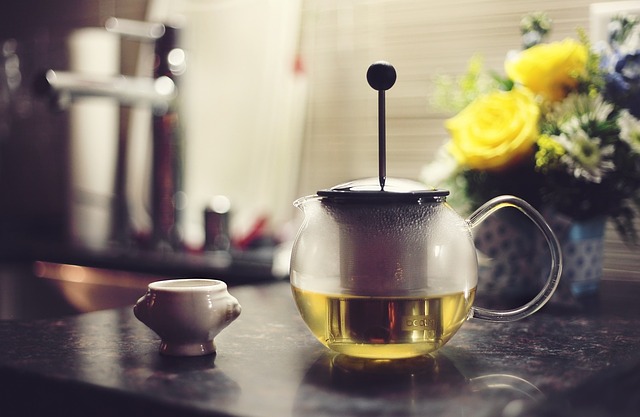
Chinese medicine is also about balance in your life. Causes of disease in Chinese medicine includes overwork, lack of sleep or too much, lack of exercise or too much exercise, over thinking, and improper diet. When we do anything that is out of balance whether it is too much work or lack of exercise we will be more apt to get sick or catch a cold. When we live in more of a balanced way it will be easier for your body to prevent from having the common cold.
If in the case you do catch a cold, acupuncture and Chinese herbs are very effective. Acupuncture and Chinese herbs will help you overcome the cold quicker and with less side effects than taking medications. The Chinese herbs that are effective for the cold and flu are both anti-viral and anti-bacterial herbs. In Chinese medicine terms they clear wind heat or cold. When you take Chinese herbs for the common cold you may feel results within a day or two.
In acupuncture we look at what channel is effected. The Lung channel is typically affected when you have a cold. We will use acupuncture points that help with the lung channel and other points to clear wind and if you have either heat signs or cold signs. Acupuncture will also help your immune system so your cold will not come back.
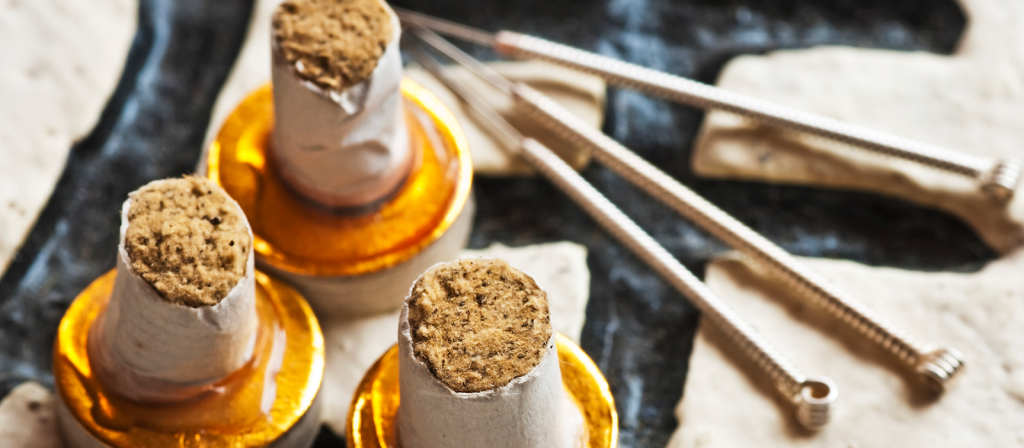
Some other things that will help with the common cold or flu is drinking warm water. Do not drink cold water with ice for the time being until your cold is gone. If you have sore throat you can drink lemon tea or if you are experiencing chills you can drink ginger tea. All of these simple remedies will help you overcome your cold and feel better.
If you are experiencing a lingering cold and flu, feel fee to contact Master Lu’s Health Center in Salt Lake City anytime to schedule an appointment! 801-463-1101
Throughout China there are many different forms of exercises. One broad form of exercise is qi gong. I say broad because there are many different forms of qi gong. One famous set of qi gong is ba duan jin or eight sections of brocade.
Ba Duan Jin is one of the most popular forms of qi gong. It consists of eight simple exercises that will improve you health and wellness. Each exercise is able to improve organ function, blood circulation, and balance in the body.
Ba duan jin was originated in China sometime around the Song dynasty which was about 1000 years ago. There are different origination stories, but one story is General Yue Fei developed Ba Duan Jin for his soldiers to remain healthy and strong. In our modern times Ba Duan Jin is practiced throughout the world and has been shown to be effective to maintain health and wellness.
At Master Lu’s Health Center in Salt Lake City Ba Duan Jin is taught as part of the Tai Chi class. This post will be an introduction to Ba Duan Jin so you can practice it at home when you can.
Helps in stretching shoulders, arms, hands, and torso. Aids with breathing and digestion. Helps low back pain. This exercise will improve your heart and spleen function, and improve blood circulation
To do it: stretch with fingers interlocked, stretch to the sky, rise on toes. Repeat three times front and sides. Touch floor—repeat three times front and sides.
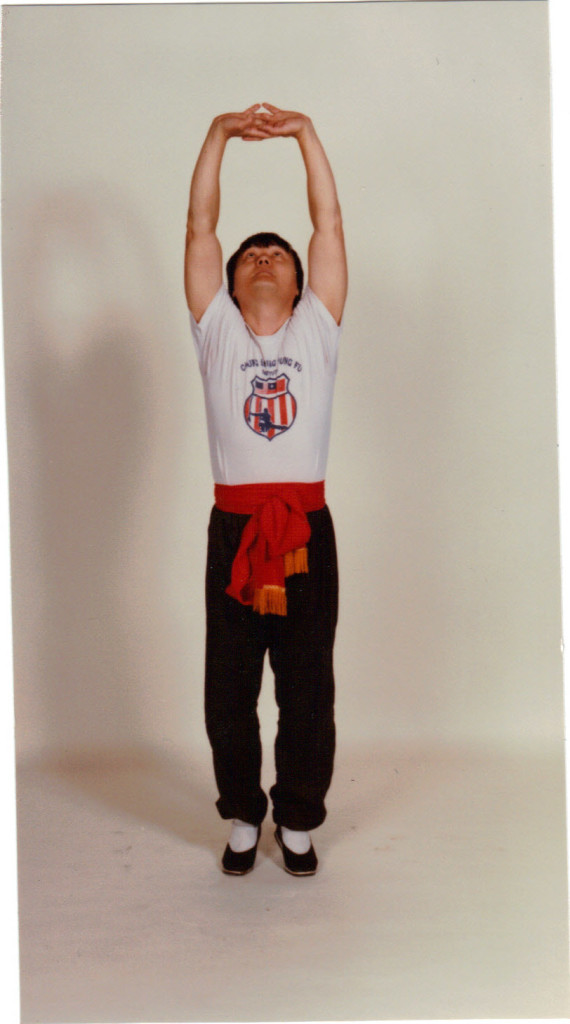
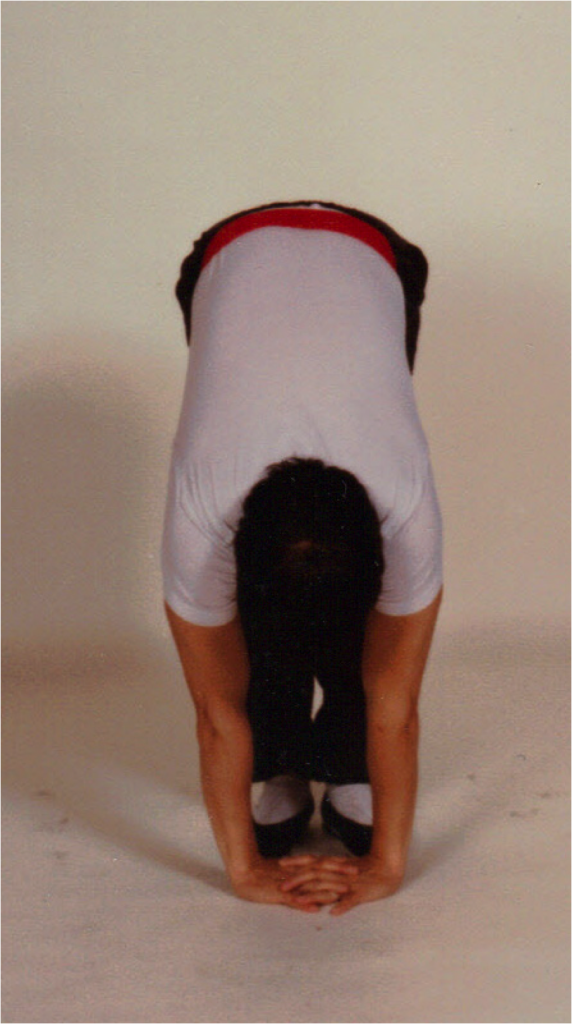
Strengthens wrists, hands, shoulders, spine, spleen, kidneys, thighs, and hips. The exercise internally will improve your lung function and breathing.
To do it: open feet to at least shoulder width, bend left knee, right arm straight with hand open. Move to the left, grab, pull back to right side, extend left arm with fist. Repeat other side.
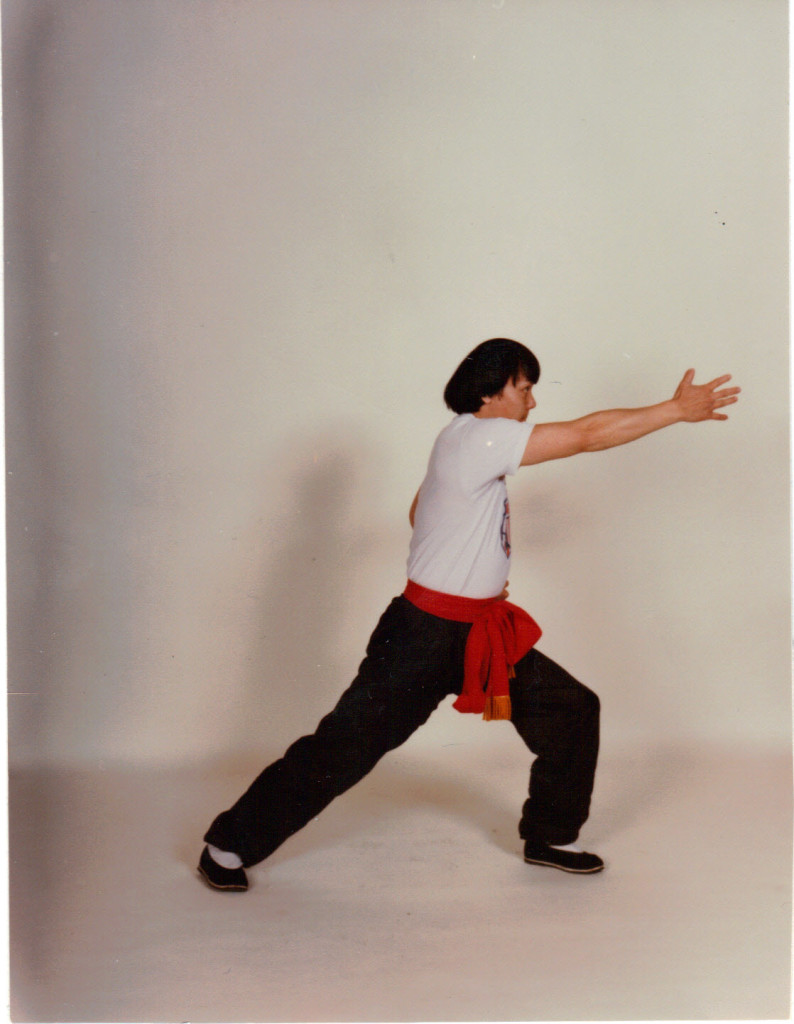

3. Raise the Hand to Regulate the Spleen and Stomach (Yin Yang Arms)
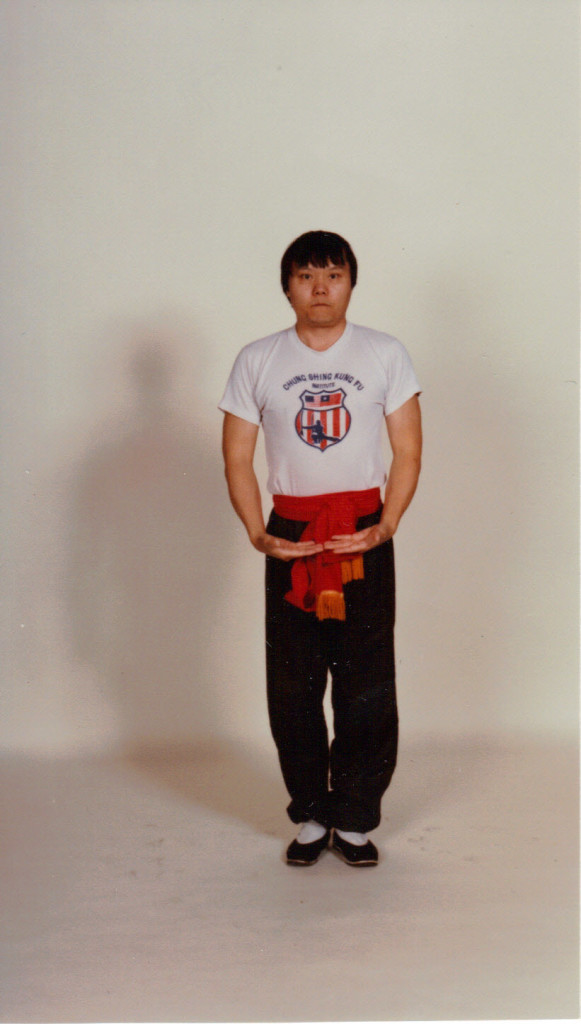
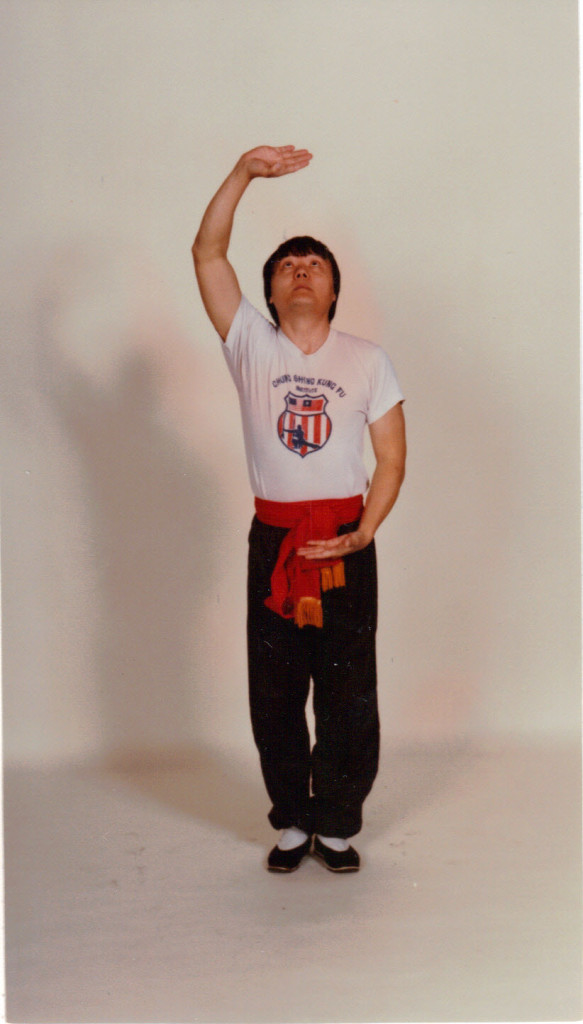
Stretches and strengthens torso and upper extremities. Improves the spleen function and aids in digestion.
To do it: feet together, finger-tips touching. Move right hand up, palm toward the ceiling, circle hand. Slowly bring the hand down to other hand. Repeat with the left hand
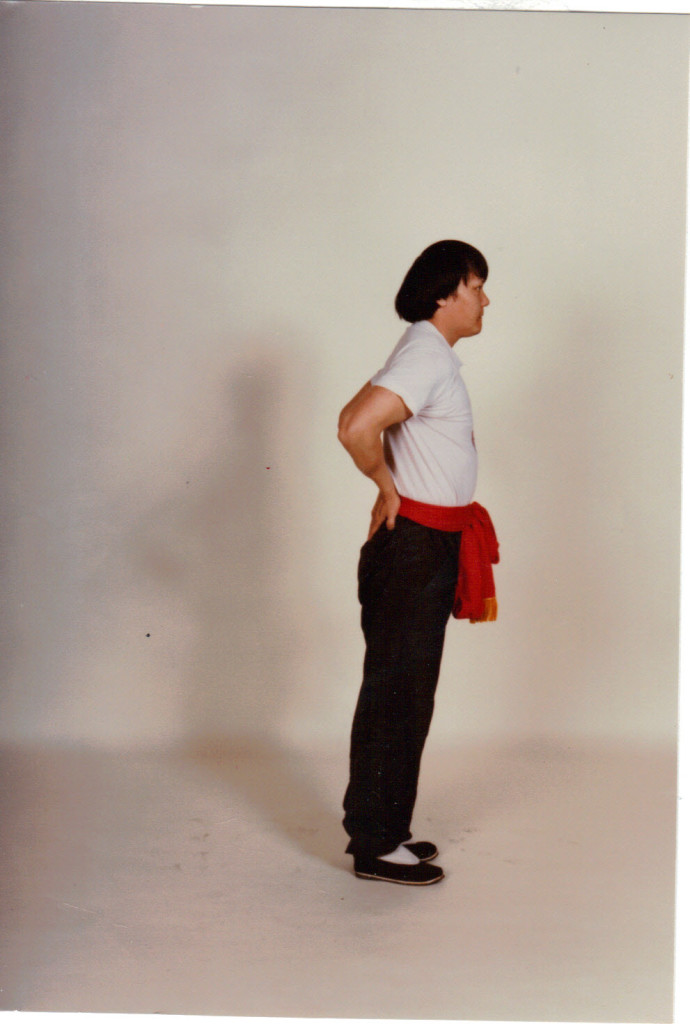
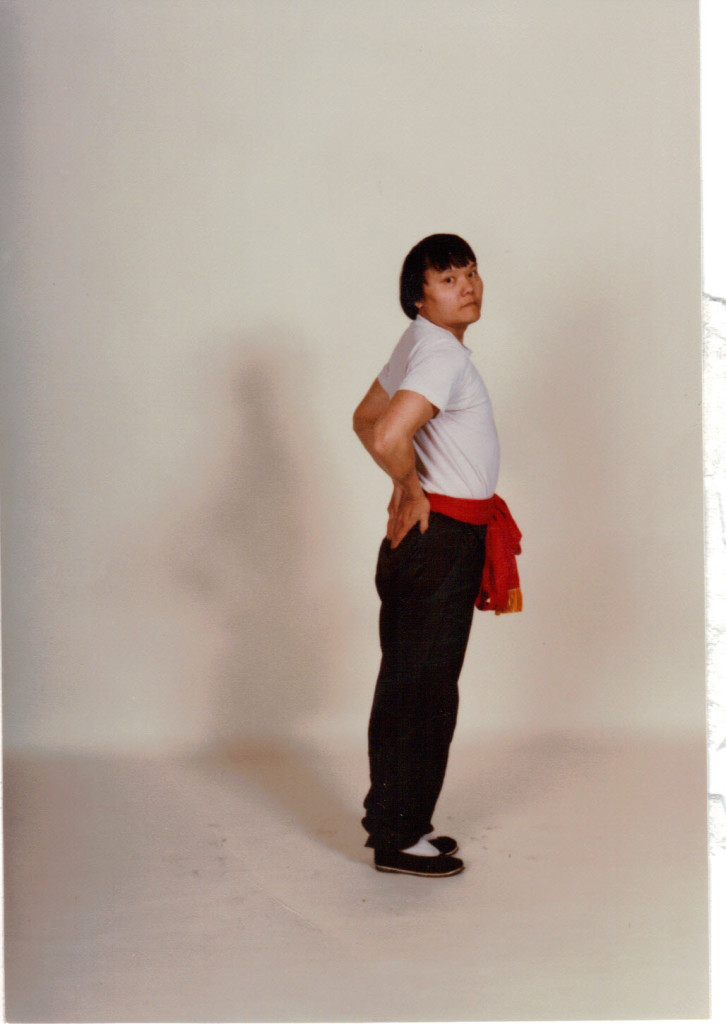
Exercises neck and chest areas. Aids respiration and eyesight. Improves liver function which in turn improves the eyesight.
To do it: both hands on back near kidneys, shoulders straight, slowly rotate head to look behind. Repeat other side.
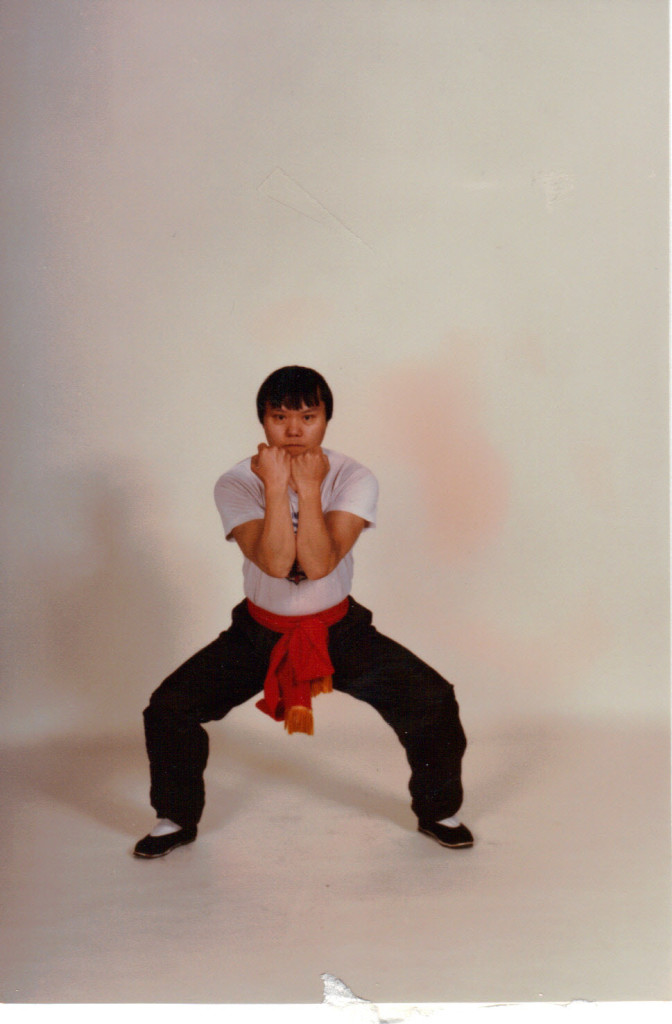
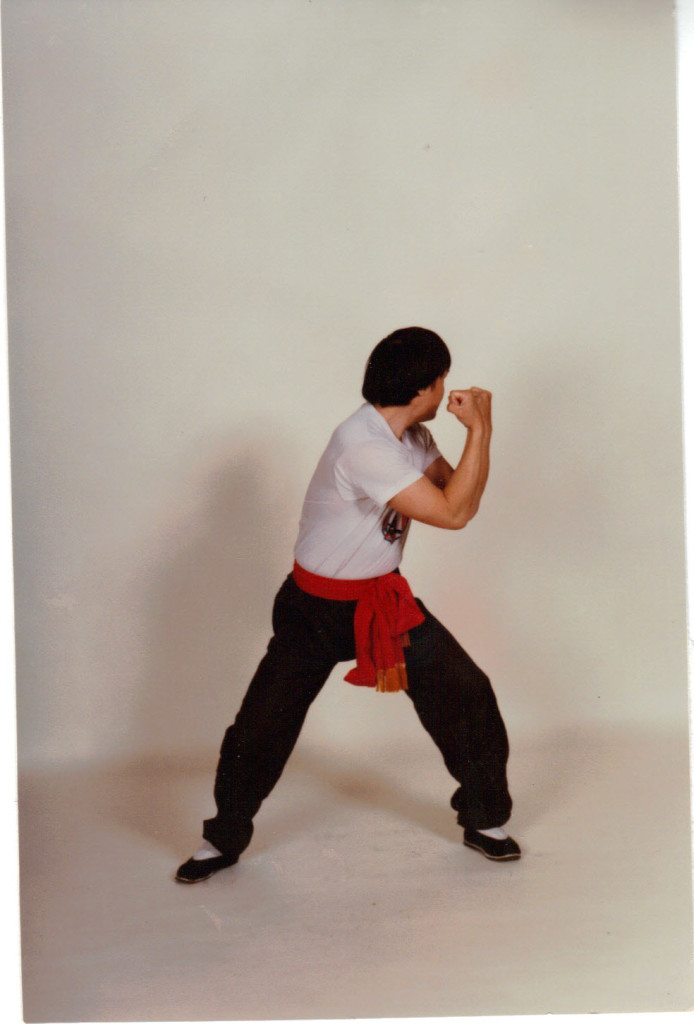
Exercises lower spine. Aids neck and upper back, thigh, knees, and ankles. Improves the Kidney channel, helps with back and knee pain.
To do it: Wide stance, sit down. Fists together in front with arms bent, elbows touching. Bend knees twist to the left. Repeat to the right.
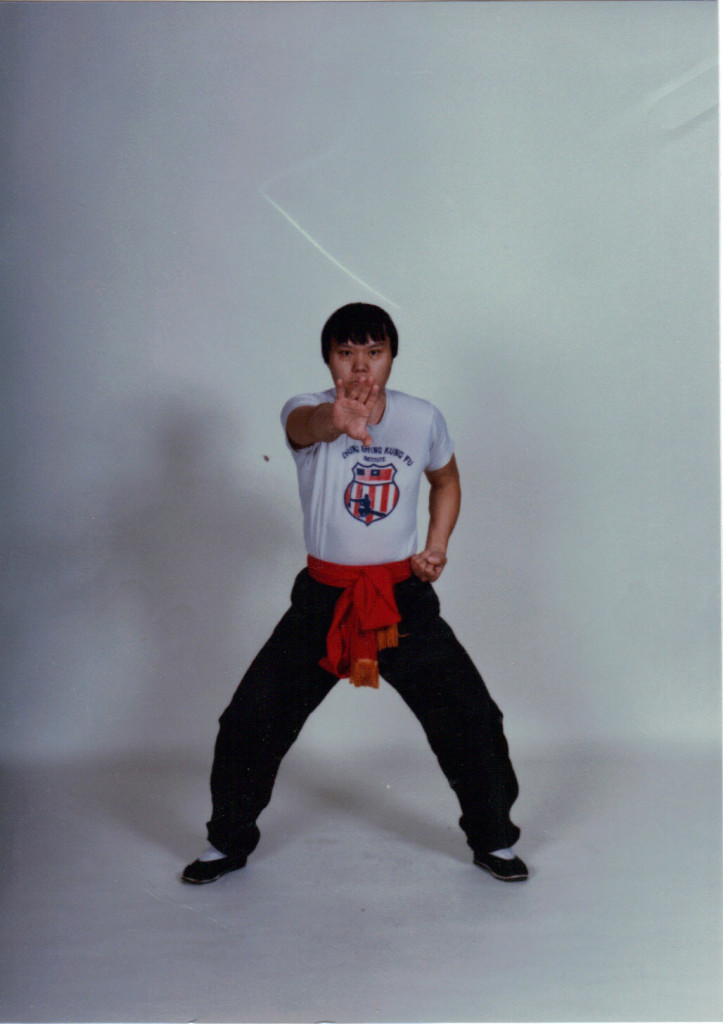
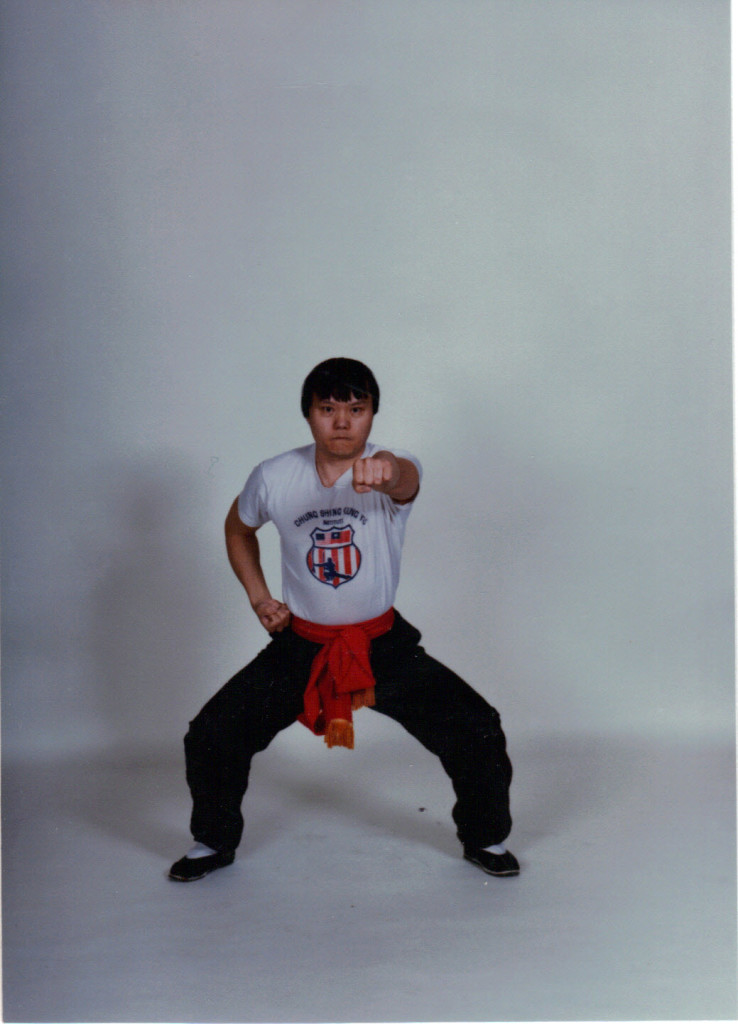
Exercises hands, wrists, shoulders, thighs, knees, and ankles. Increases energy levels. Improves Liver and Kidney function and helps with the eyes.
To do it: horse stance, arm extended, open right hand, grab, pull back while thrusting left fist forward. Repeat opposite sides.
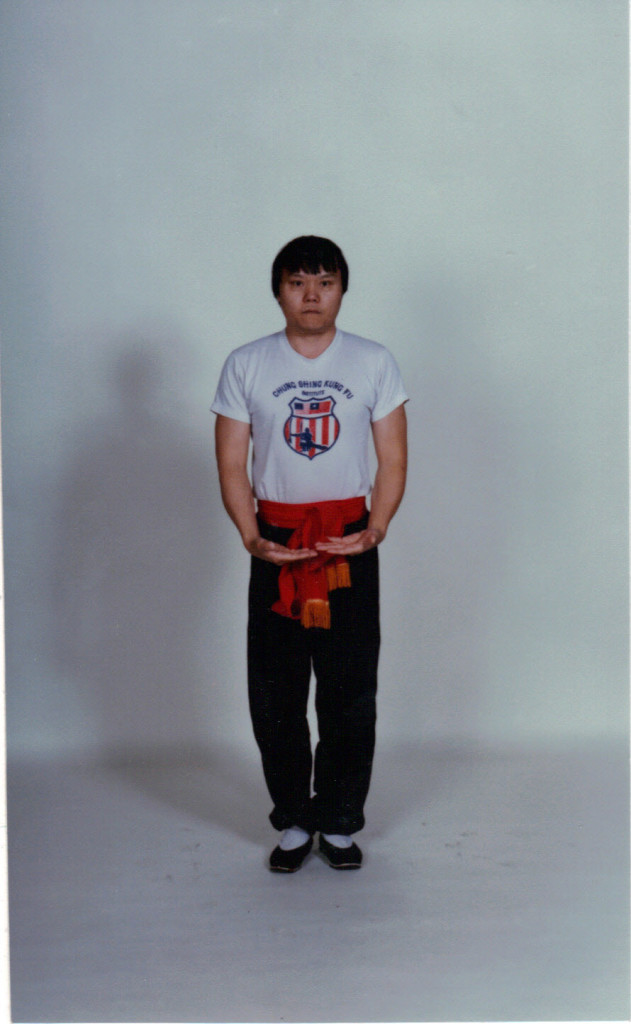
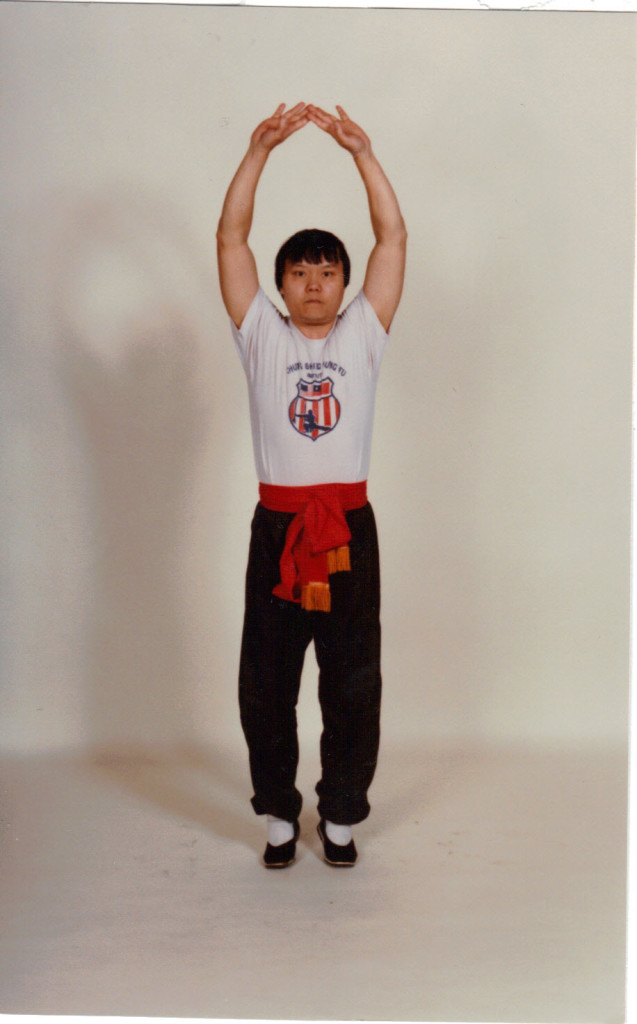
Stretches upper extremities. Aids respiration, digestion. Exercises ankles and calves.
To do it: fingers together in front, rise on toes, arms go to side then touch overhead. Bring down. Repeat.
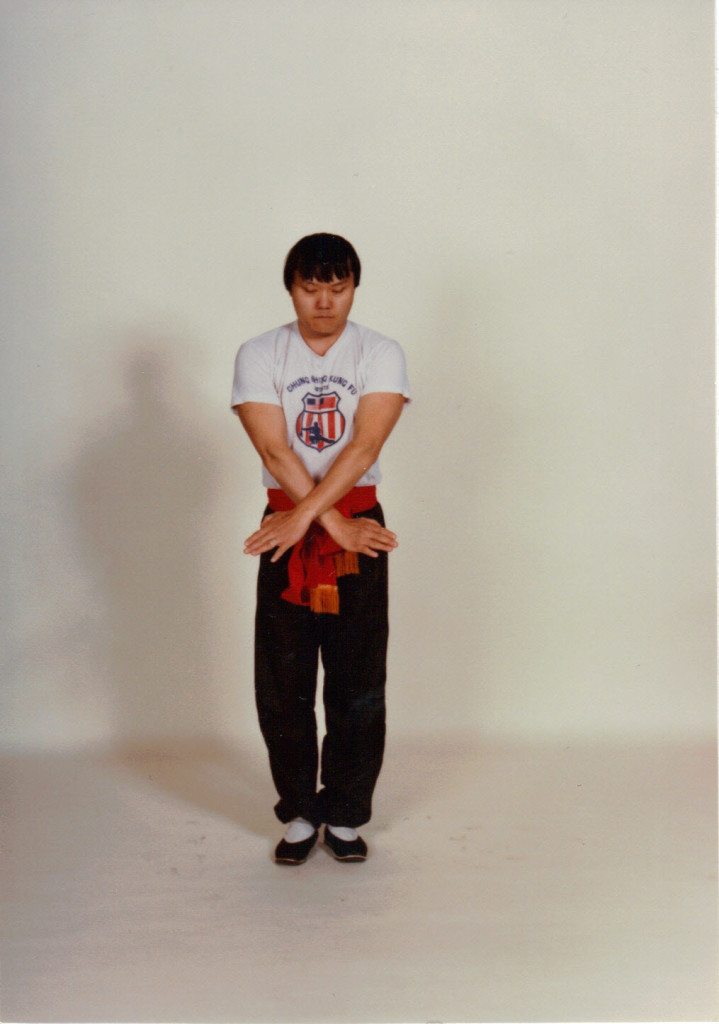
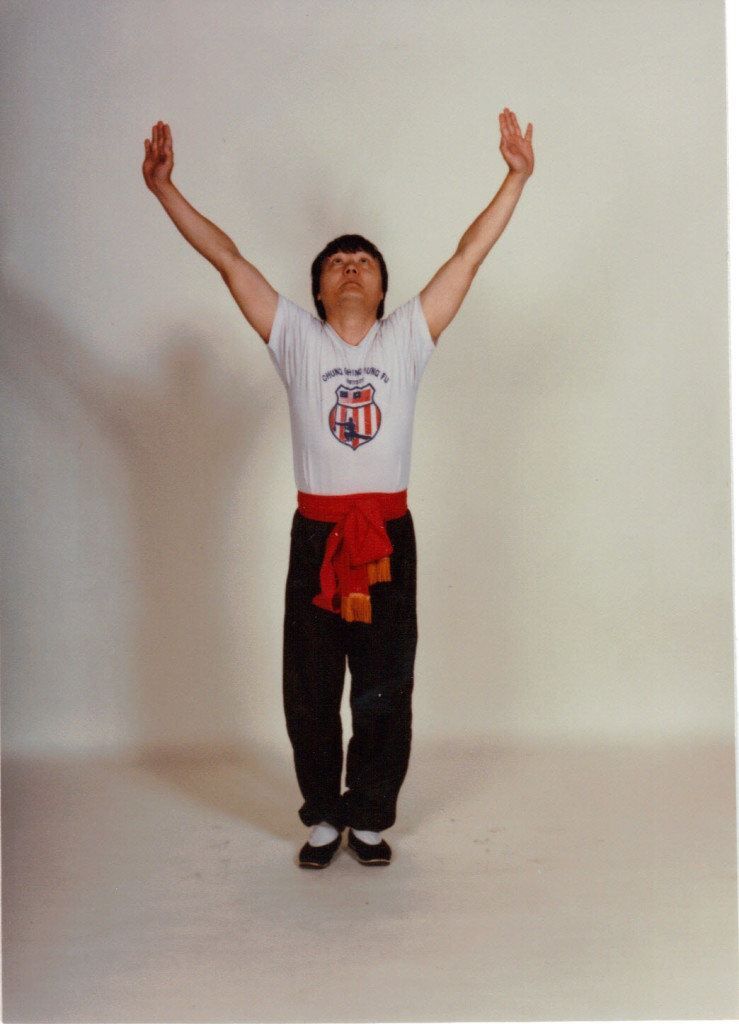
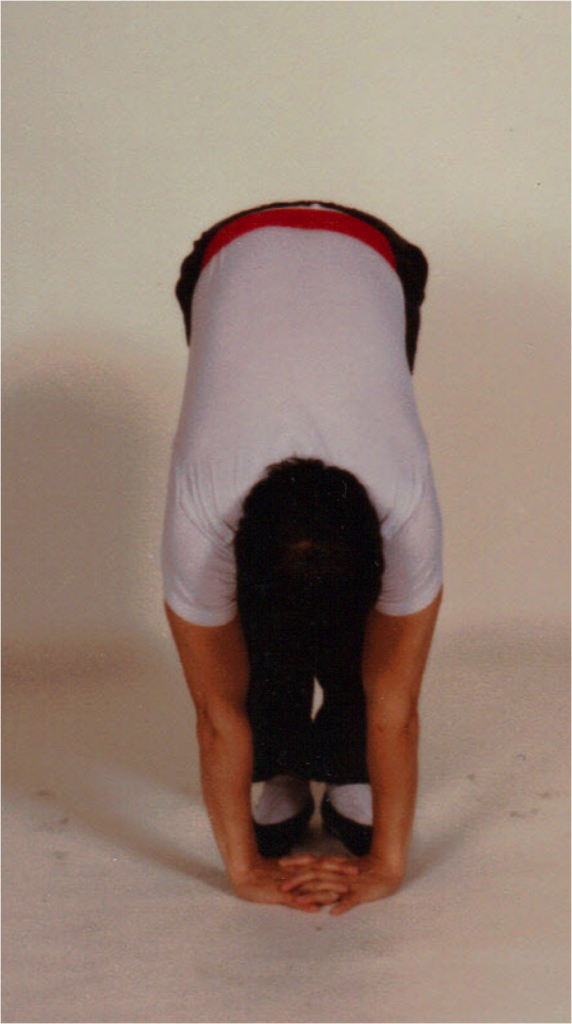
Helps lower back and kidney areas, migraine headaches. This exercise will also improve the kidney function.
To do it: Hands crossed in front, hand side-overhead-touch, bring down, touch back of heels keeping knees straight.
Ba Duan Jin is a wonderful set of exercises that will help you improve your health and wellness. As you practice these exercises on a daily basis you will feel a difference and will feel fantastic.
If you are interested to learn more please don’t hesitate to contact Master Lu’s Health Center in Salt Lake City and we are more than happy to help you achieve your wellness goals.
